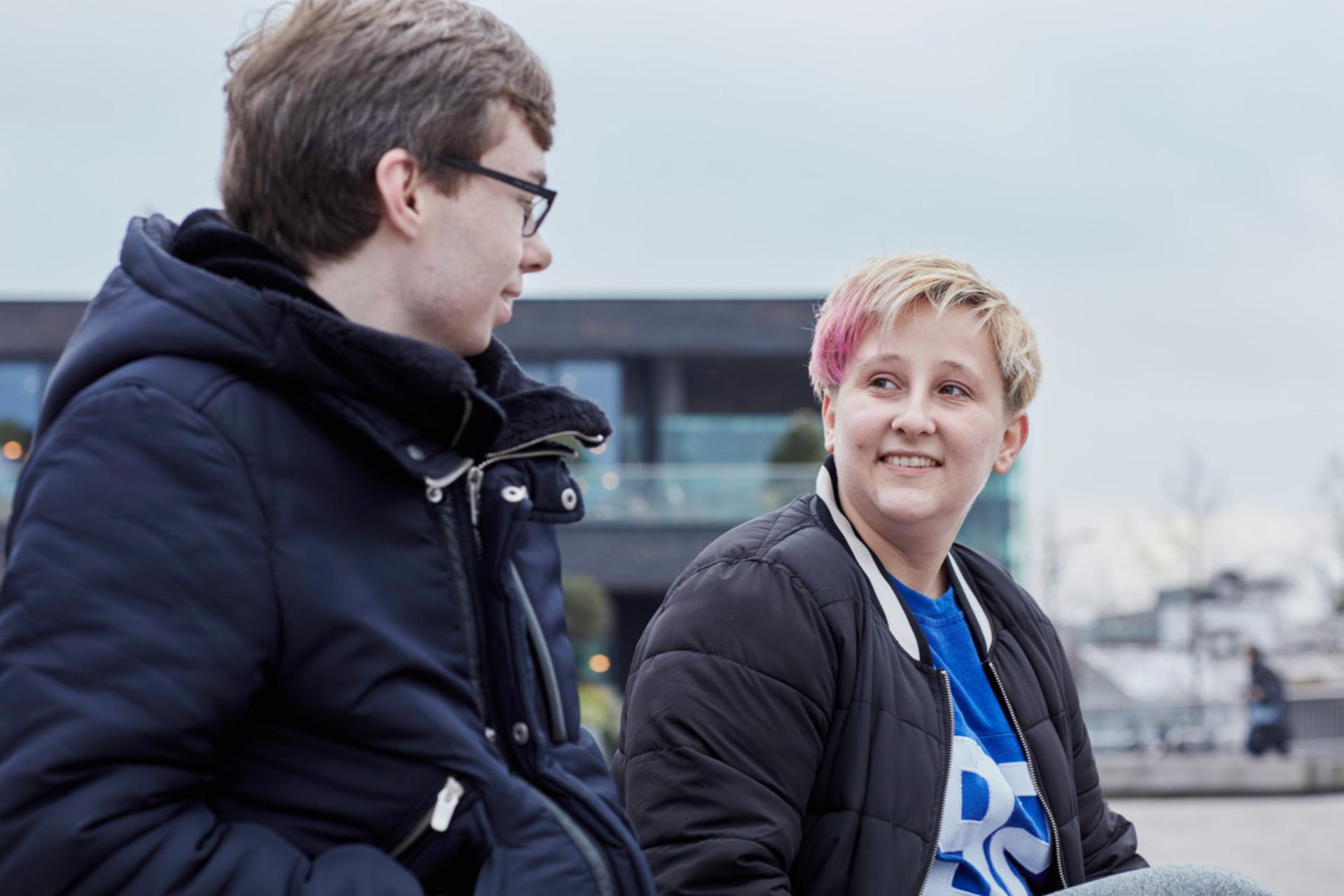When Uluk began teaching his friends about reproductive health, he had no idea that it would develop into a fully-fledged vocation. It all started when one of his friends began asking everyone to hold up their thumbs. “We did, and my friend began to laugh. And then he said that he could determine the size of someone’s penis just by observing the size of the thumb. After that, my friends began asking me questions, either on social media, or out and about.”
Uluk, 16, now refers to himself as a “junior expert” on reproductive health issues. As a volunteer for the Reproductive Health Alliance (RHAK)*, Kyrgyzstan, he began conducting training sessions for secondary school students, and providing referrals to other young people for their clinic in the capital, Bishkek. It was at one of these meetings that he met Ainura, who lives in the country’s Chuy Region. She told Uluk that after getting her first period, she was brought to a gynaecologist, who found out she wasn’t a virgin and informed her mother. She was subsequently punished by her father who told her, “You are not a girl; you are a disgrace to our family.” Ainura’s story reflects the deep societal stigmatisation about sex and morality that girls face on a daily basis.
It is so important for girls like Ainura to have access to information on their sexual and reproductive health and rights. In a country where sex and sexuality are very much taboo, young people are often left to fend for themselves when it comes to reproductive health. Uluk and other young volunteers play a vital role in providing education and services to young people where they have been largely kept out of the loop.
Women and girls in Kyrgyzstan continue to be at a disadvantage primarily due to gender stereotypes, and conservative customs and practices.
Although the country has a gender action plan, and has signed the Beijing Platform for Action to uphold women’s sexual and reproductive health and rights, a lack of political will and reduced funding mean that these treaties have had very little impact.
Although comprehensive sexuality education is on the official curriculum, few schools offer it. The influence of religious groups and a lack of funding make it increasingly difficult to teach sexuality education, which leaves young people – who make up 31% of the population –particularly vulnerable to sexually transmitted diseases and unintended pregnancy.
Many young people in Bishkek are actually too worried to go to private clinics due to the suspicion surrounding their visits. They tend to use the internet to find out about sex and in turn go to unlicensed clinics to avoid their parents and the rumours that follow. The reproductive health knowledge young volunteers gain fills a massive gap in information that they do not receive at school or home. Uluk often conducts classes on reproductive health matters, HIV/AIDS and contraception at school.
Hoping to ensure that all young people benefit from improved access to information, education and services, RHAK worked with key decision-makers to ensure sexuality education and youth-friendly services were included in the national reproductive health strategy.
“The state and private sectors only seek to benefit themselves, not us,” says Uluk.
“We must take care of our own reproductive health. There's nothing shameful in knowing about it, it is shameful not to know about it.”
* IPPF’s Member Association
by Galina Chirkina, Executive Director, Reproductive, Health Alliance Kyrgyzstan, (RHAK) featured in the Girls' Rights Gazette for European Week of Action for Girls
when
country
Kyrgyzstan
Subject
Comprehensive Sex Education
Related Member Association
Reproductive Health Alliance of Kyrgyzstan








